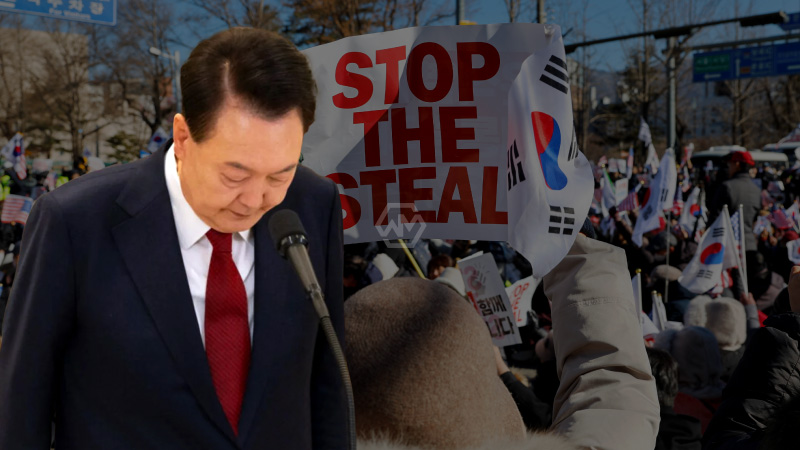- President Yoon Suk Yeol was detained in a historic first for an incumbent South Korean leader.
- The arrest stems from his failed martial law declaration in December.
- Over 3,000 police officers participated in the operation to enforce the warrant.
President Yoon Suk Yeol was arrested on charges of insurrection, marking the first time a sitting South Korean president has been taken into custody.
Yoon, who has denounced the investigation as “illegal,” stated his compliance was to prevent violence between the police and his guards. His arrest underscores South Korea’s robust legal system, which has historically prosecuted former leaders for abuse of power and corruption.
Insurrection Allegations Lead to Arrest of South Korean President Yoon
In an unprecedented move, South Korean authorities arrested President Yoon Suk Yeol on charges of insurrection, following his impeachment after a failed martial law declaration. The arrest was executed after weeks of tension, with Yoon holed up in his residence, guarded by loyal presidential security forces who resisted earlier attempts to detain him.
The operation saw the deployment of thousands of police officers, emphasizing the seriousness of the charges. Yoon, in a video message to his supporters, decried the investigation as invalid and claimed the warrant lacked legitimacy. However, he chose to cooperate to avoid a potentially violent standoff.
This arrest reflects South Korea’s evolving approach to political accountability, extending the nation’s history of prosecuting former leaders. Yet, the charges of insurrection—unlike the corruption cases of past presidents—raise unique concerns about democratic stability and governance.
Observers fear that such political turmoil may polarize South Korean society, already divided over Yoon’s administration. The case’s outcome could redefine the balance between executive authority and legislative oversight in one of Asia’s most vibrant democracies.
The arrest of President Yoon signals a watershed moment in South Korea’s democratic journey, showcasing the nation’s determination to uphold legal principles even amid political turbulence.
“I decided to respond to the CIO’s investigation—despite it being an illegal investigation—to prevent unsavory bloodshed.”



